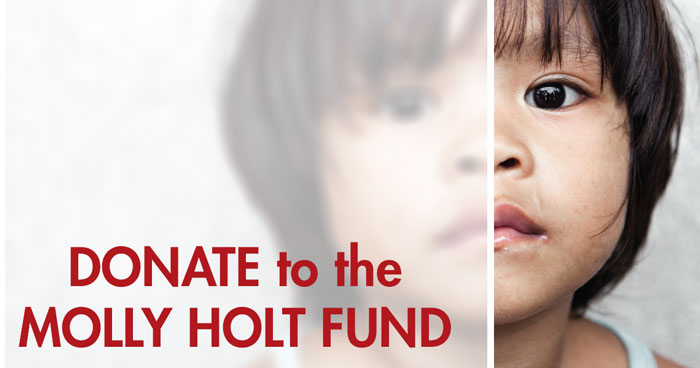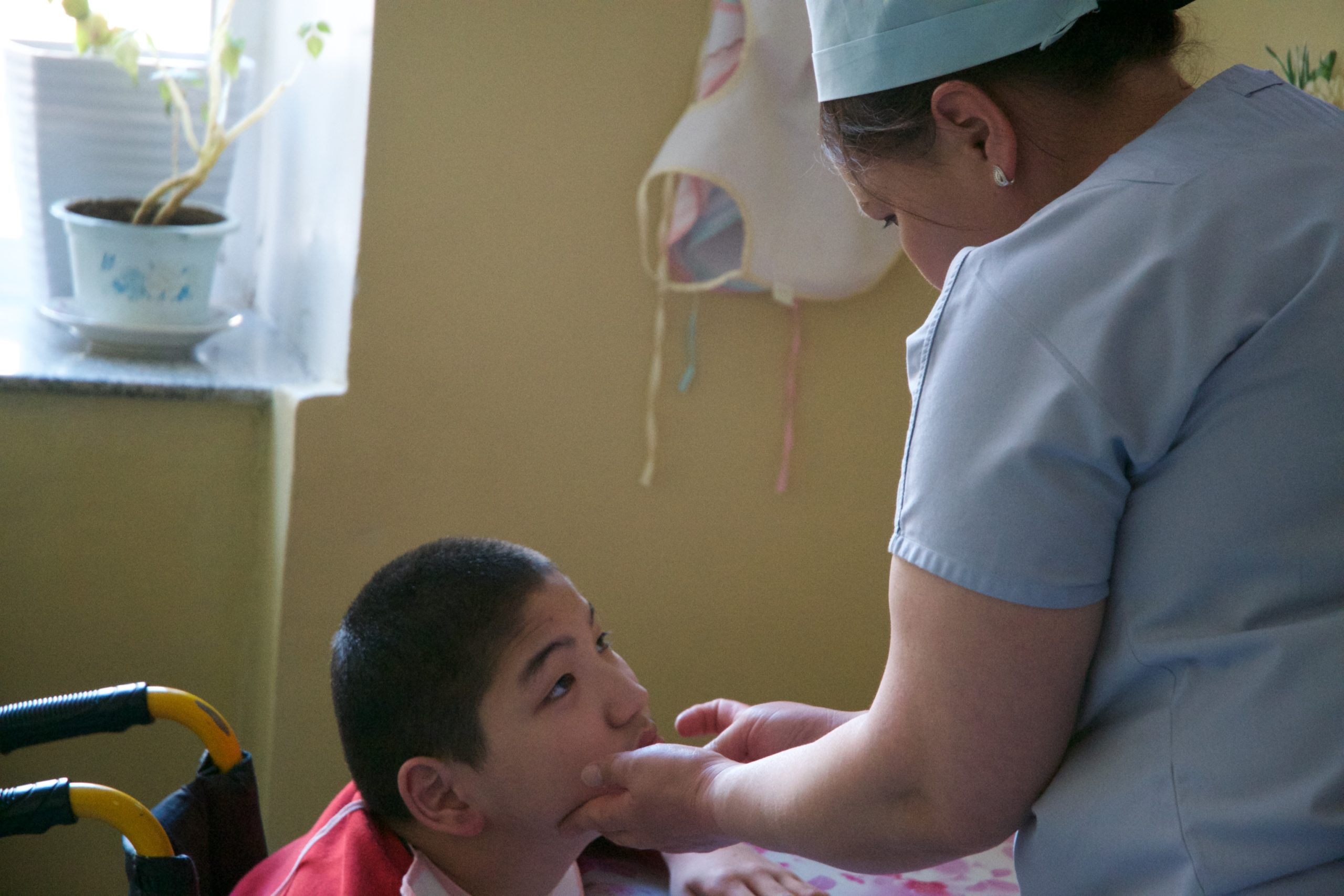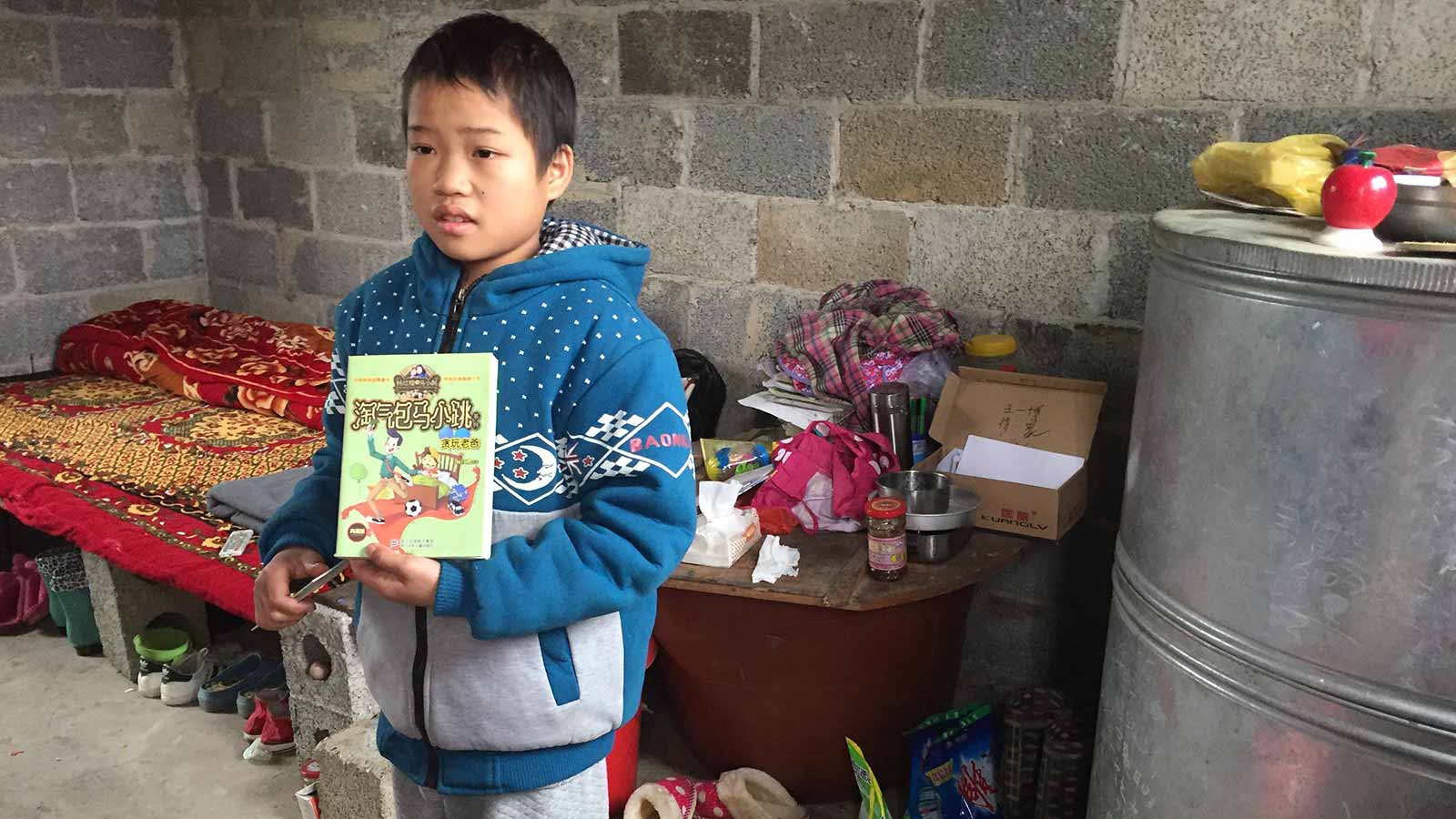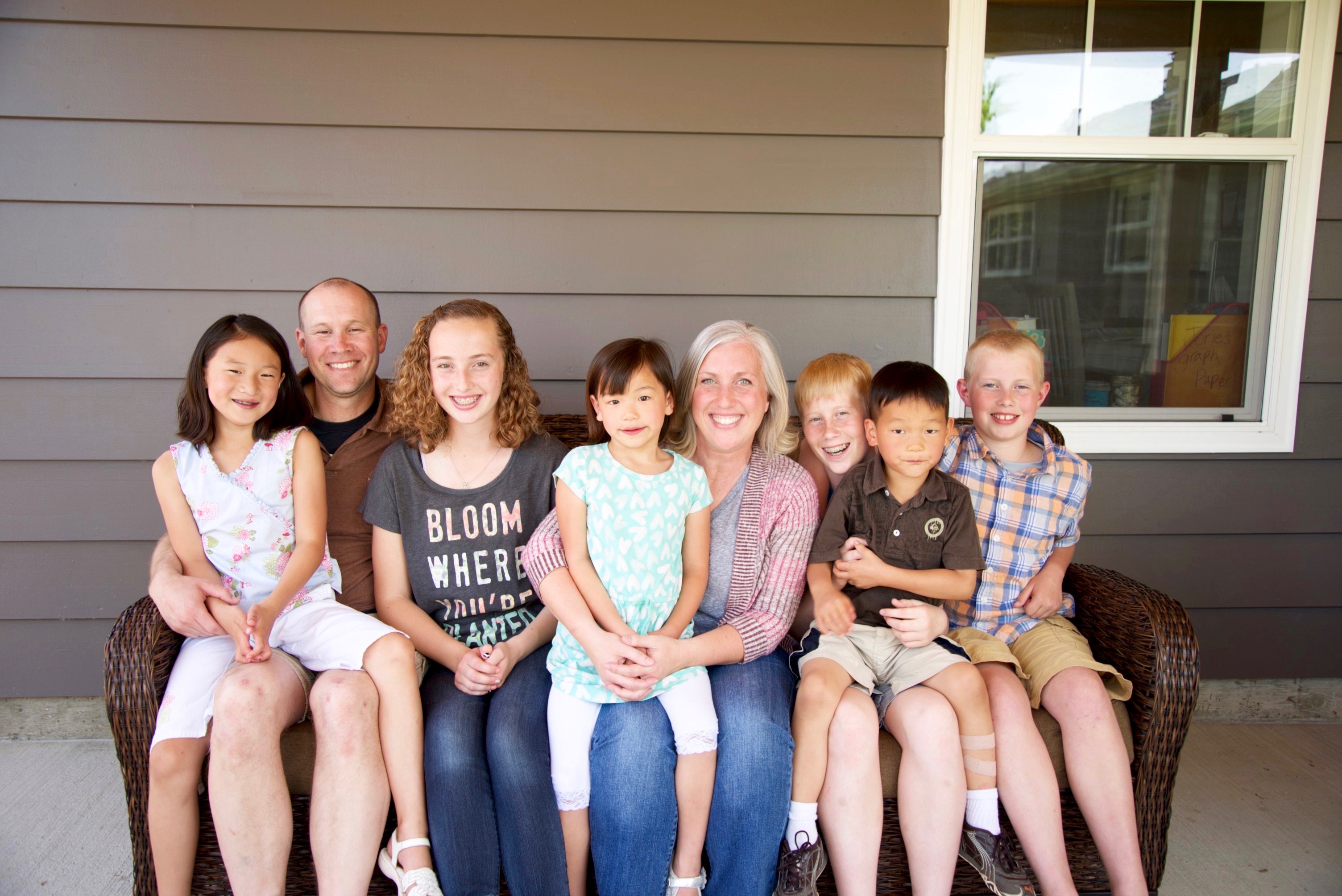
Jennifer and Marc have six children. Three are biological. Three are adopted. And three of their children each have a different special need. But for all six of Jennifer and Marc’s kids, their hopes and dreams are just as big — and just the same.
It’s an unusually warm spring day — the kind of day where, if you’re homeschooled, you work like crazy to get all of your work done in the morning so you can go outside and play. And today, that’s just what the Comer* kids decide to do.
Joyful giggles and shrieks fill the backyard as these six siblings do ninja moves mid-air on the trampoline, kick around the soccer ball and dash through the yard giving piggyback rides.
The fun they are having and love for each other is evident in how they play — but the most beautiful thing about this scene becomes evident when you hear this family’s story. That, because of their special needs, three of these children may have never had the opportunity to be accepted and loved within such a family.
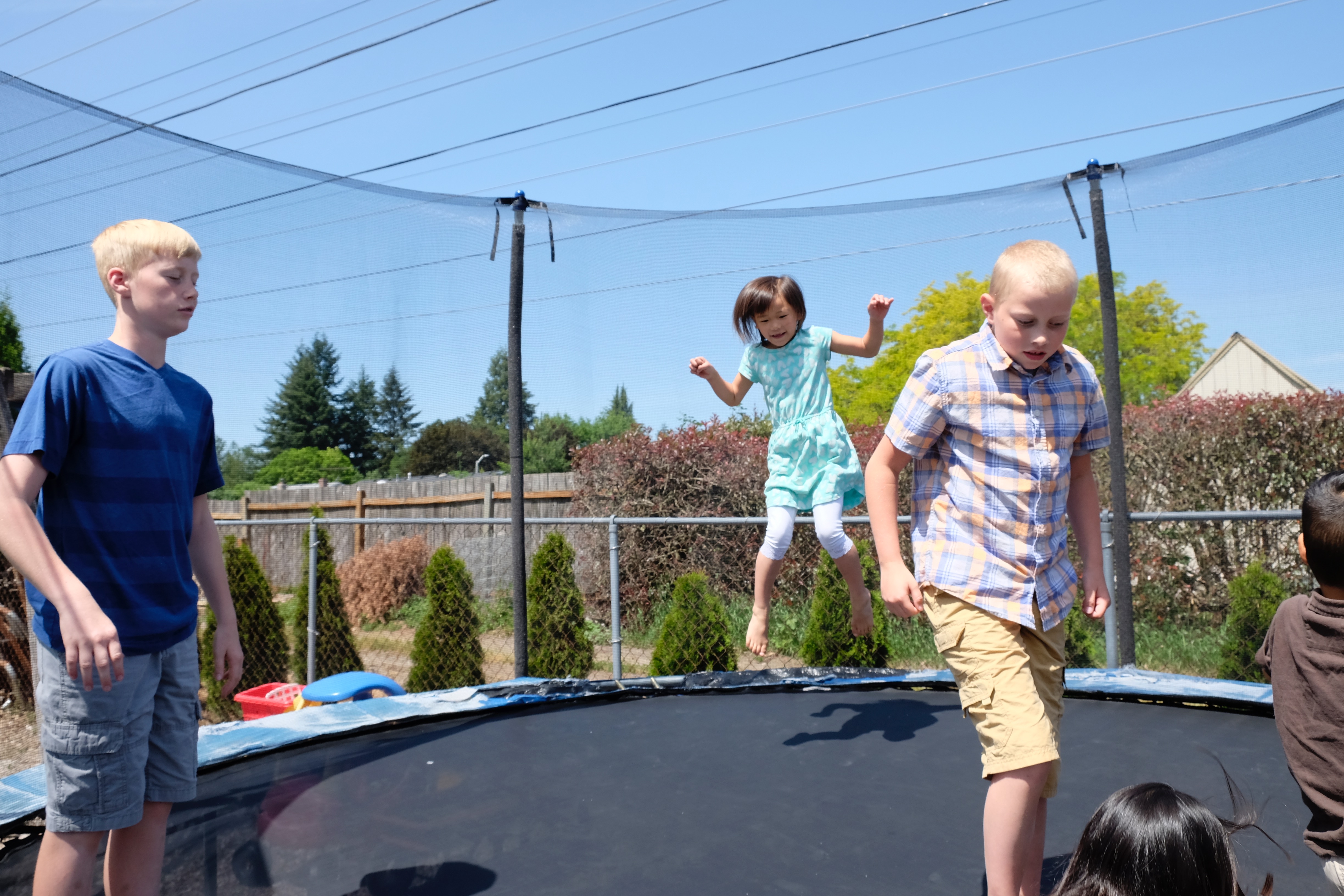
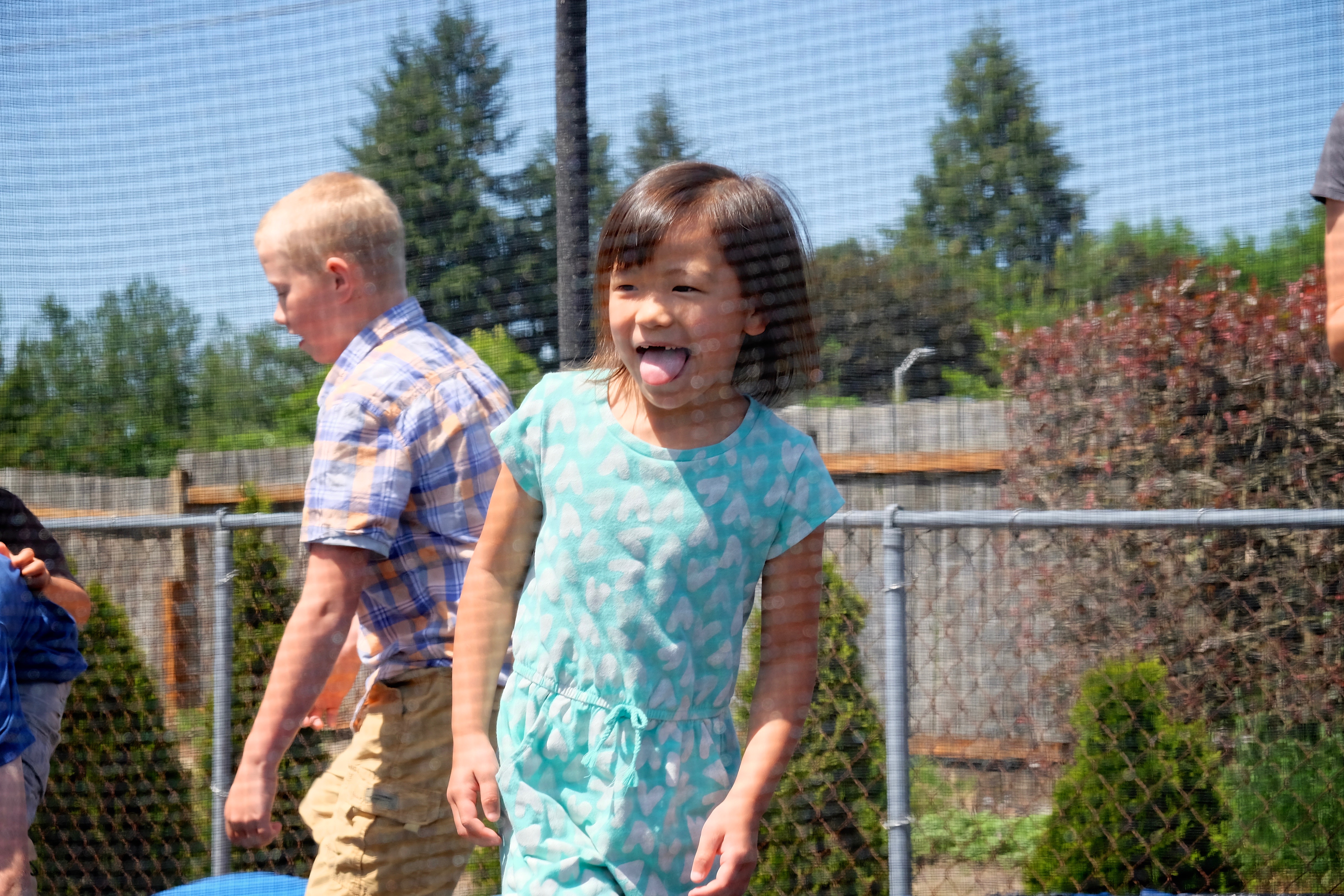
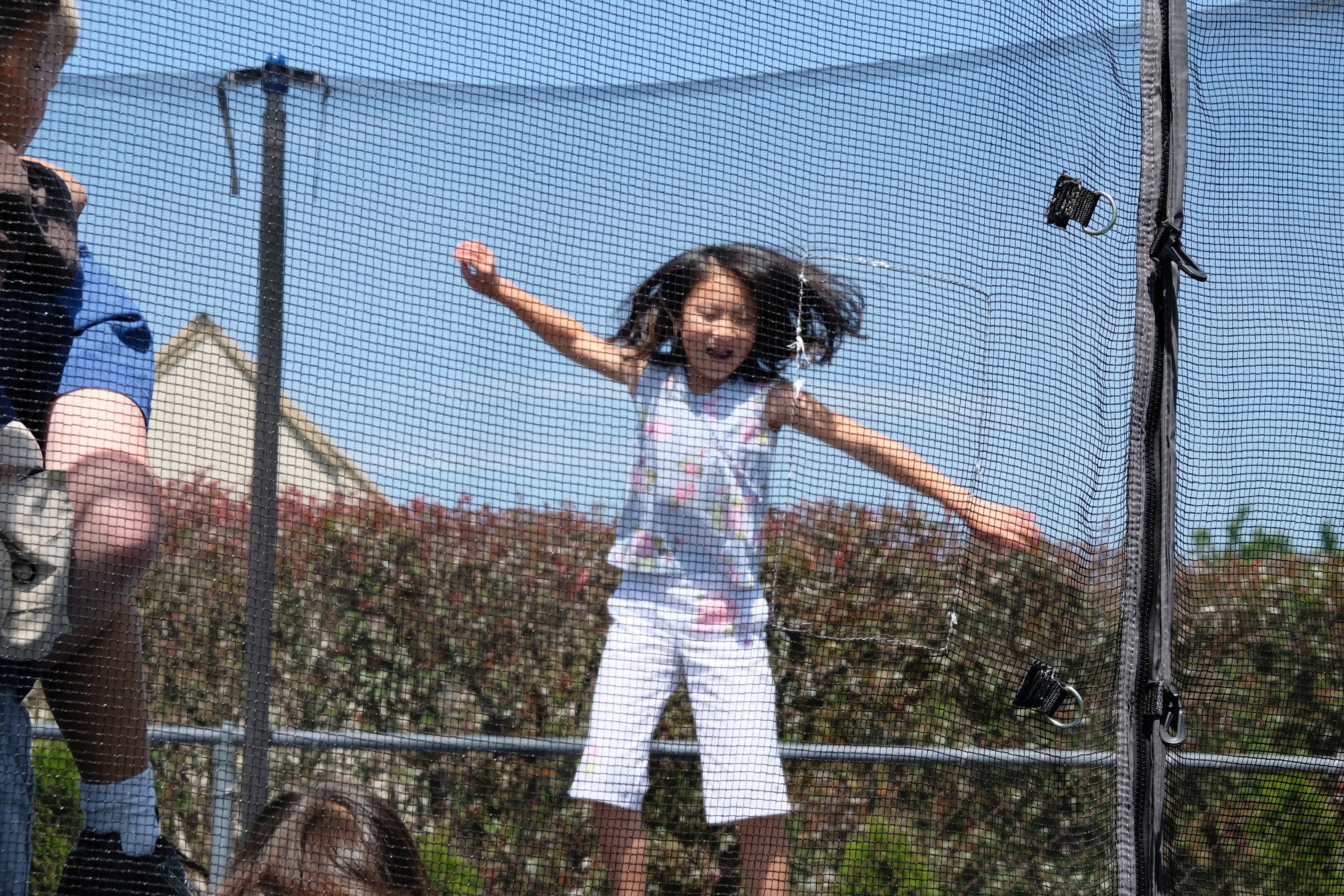
Jennifer and Marc Comer always knew they wanted to adopt. This dream began when, as a teenager, Jennifer spent a summer working at an orphanage in China.
“God broke my heart for the orphans there,” she says. “So when I came back and we started dating then got married we just always knew that that would be a part of our story — and indeed, it has turned out to be!”
What they may not have known at the time, though, is that special needs would also be a part of their story. Their three children adopted from China have a diverse range of special needs, including nonverbal autism, cleft lip and palate, and HIV.
In China, and around the world, there is a stigma against special needs. This stigma is what leaves many children abandoned and in need of permanent, loving families through adoption. While this stigma touches all special needs, the one it hits hardest may be HIV. Sadly, this stigma is not unique to China — while it may be less pronounced, it is present even in the United States today. For this reason, the Comer children will remain unnamed in this story. This is for their own protection as well as to preserve their right to share it for themselves someday, if they so choose.
But also, in leaving these children unattached from their special need, something beautiful happens — we see each of these children not through the label of their special need, but for who he or she truly is.
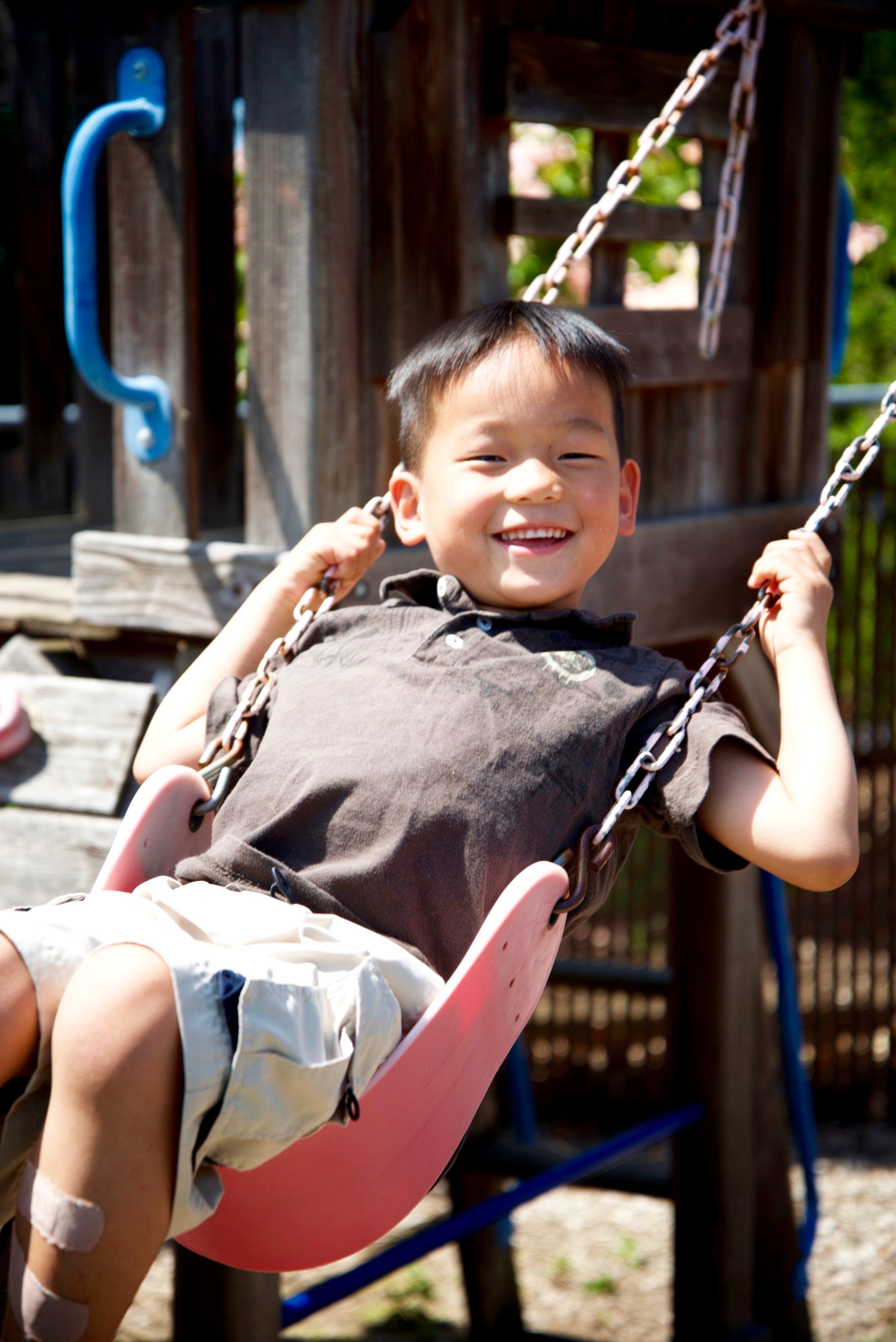
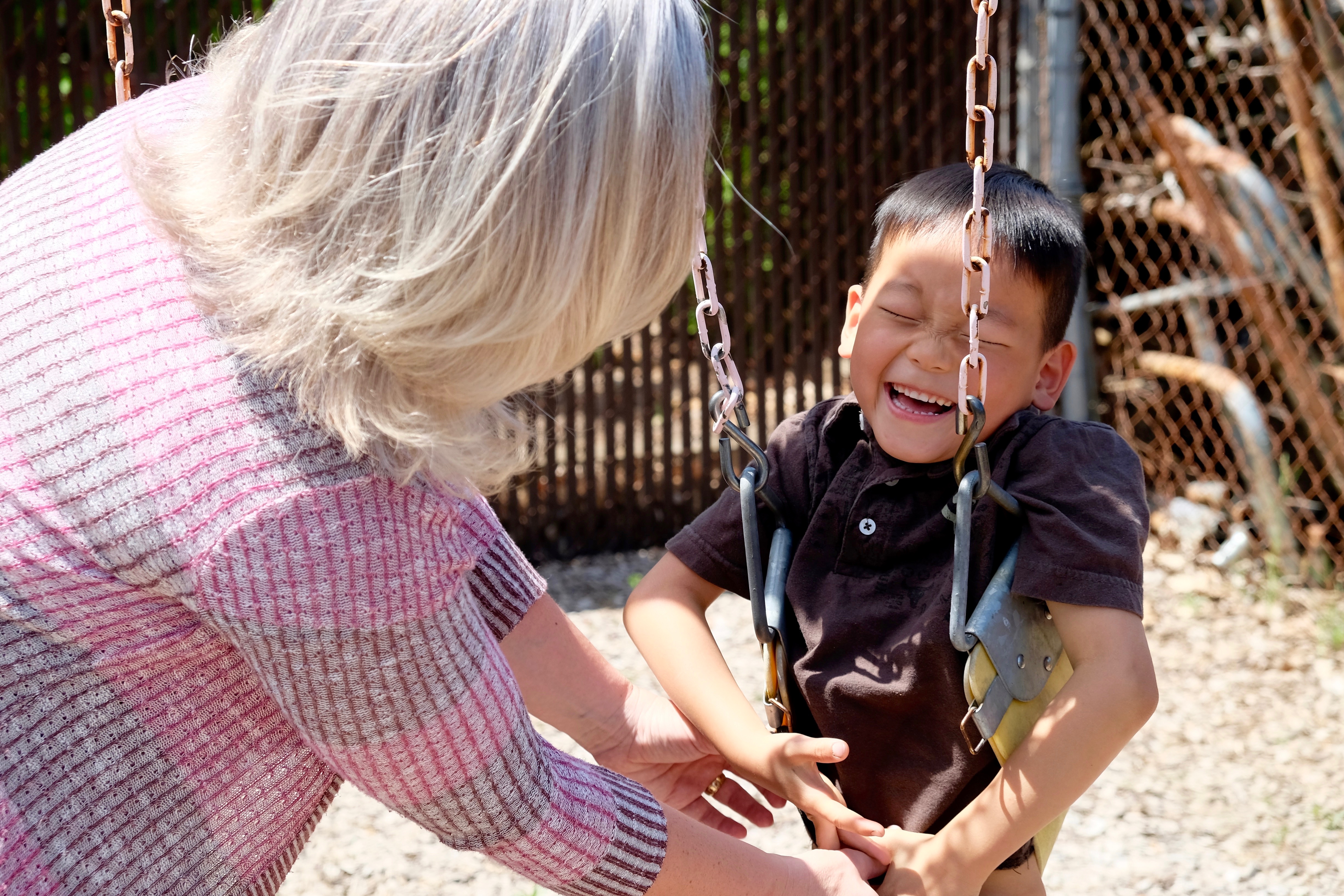
“These kids are normal kids,” Jennifer says. “They had the label of special needs but we are all created equal and we know that their hearts are no different than anybody else’s. We all have hearts that need love.”
This truth has been beautifully evident to Jennifer and Marc. While they had always felt very called to international adoption, at first, they were unsure about the special needs component. Even though both are in the medical field — Jennifer as a nurse and Marc as a firefighter/paramedic — they were daunted, especially when they considered adopting a child with HIV.
“We were very intimidated by that label — scared by that label,” Jennifer says, not just about HIV, but about other special needs as well. But once they adopted their first child with special needs, they say this intimidation and uncertainty was instantly gone.
“Once we got to China and I saw [my child’s] face and the joy that is expressed in everything [he or she] does, we fell in love,” Marc says. “Then you don’t see HIV in your child. You see a child of God.”
Because of this, Jennifer and Marc’s hopes and dreams for each of their six children are the same — regardless of their special needs. “To fall in love with God, to glorify Him and to be the best they can be,” Marc says. “And to love people,” Jennifer says. “To love people no matter what they look like, no matter what they smell like, no matter how they talk or how many medical appointments they have to go to — to see past that to see people’s hearts. To love everyone, no matter what.”
Today, the majority of children who need families around the world have some sort of special need. And Holt is dedicated to finding loving, permanent families for these children. And while these children wait, it is crucial that they receive the medical care, therapies and specialized caregiving that allows them to develop to their full potential.
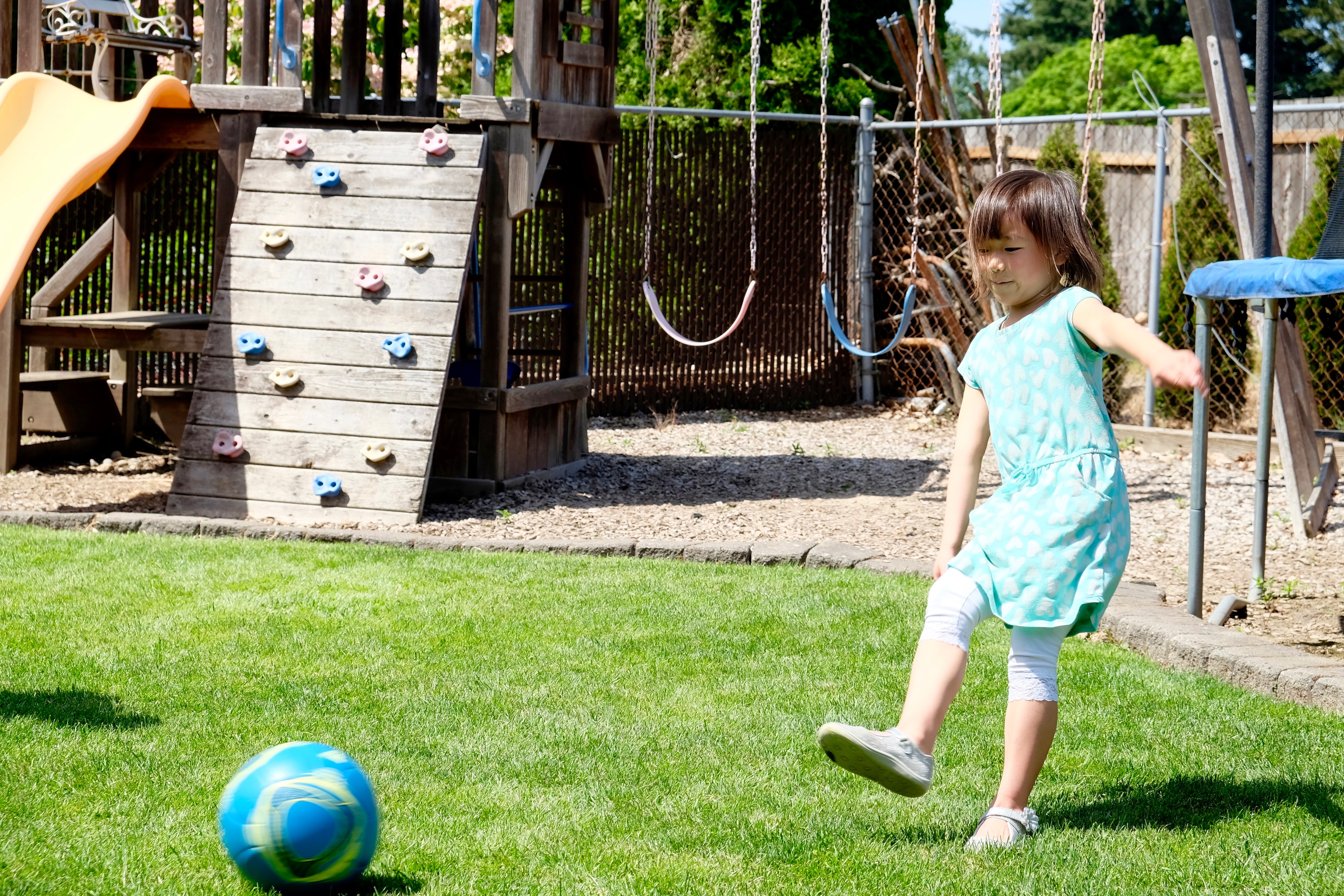
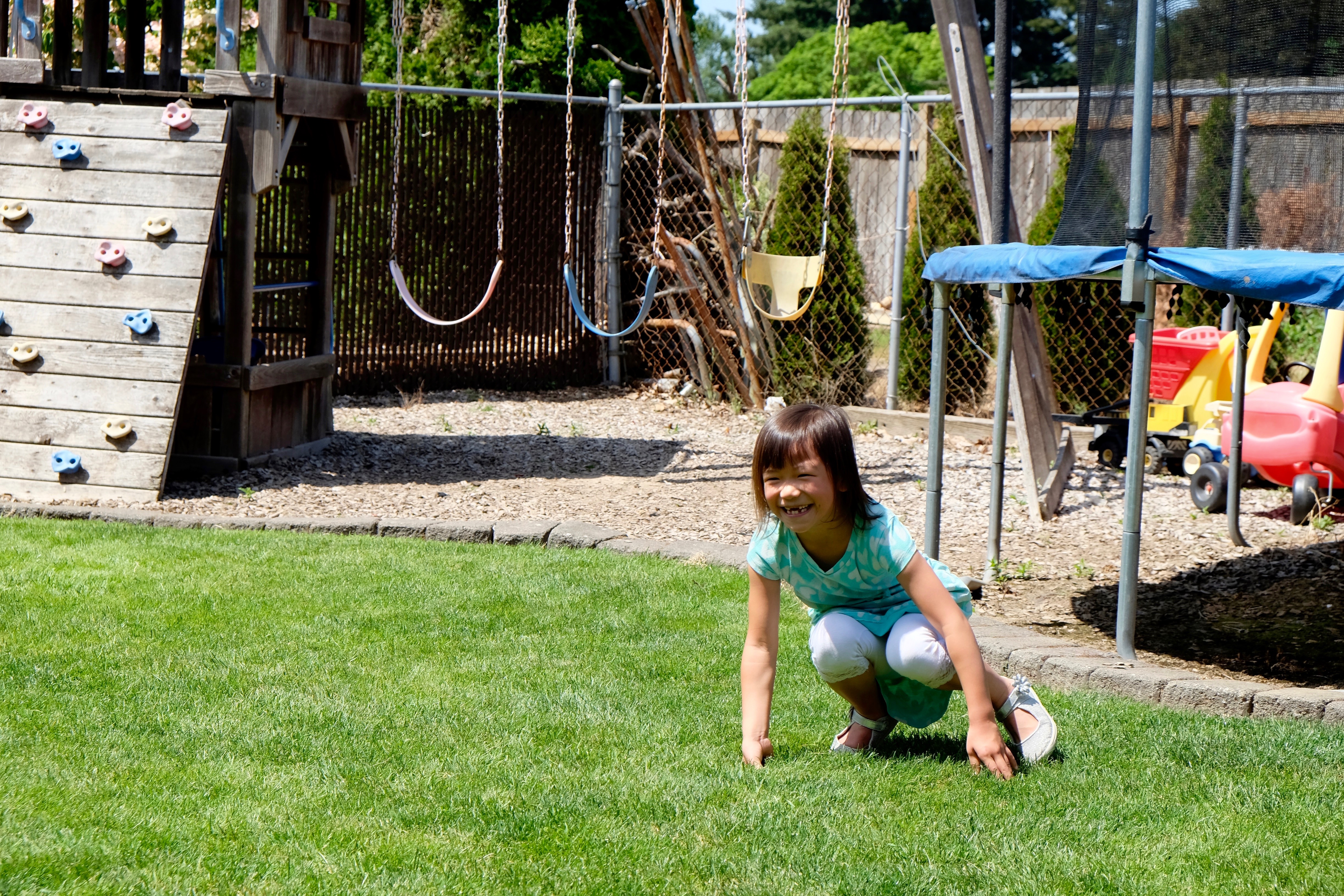
“One thing about special needs kids is that they do need specialized care,” says Jennifer. Whether a child has physical or developmental special needs, they can benefit enormously from specialized doctors, therapies and resources. This is crucial to their health and development, especially when they are so young. “It really means everything for them and for their future,” Jennifer says. “It is so important to get that as soon as possible when they’re still in their birth country and haven’t been adopted yet.”
Before they were adopted, one of the Comer children received lifesaving bowel resection surgery when they were just a few months old. And while their child with HIV was living in an orphanage, all of the caregivers were given specialized training to know how to care for them. This care, along with all they’ve received since coming home — whether this be correctional surgery for cleft lip and palate, occupational therapy or emotional comfort and care as they combat the stigma of special needs — has made such a difference in their lives and in the lives of the whole family.
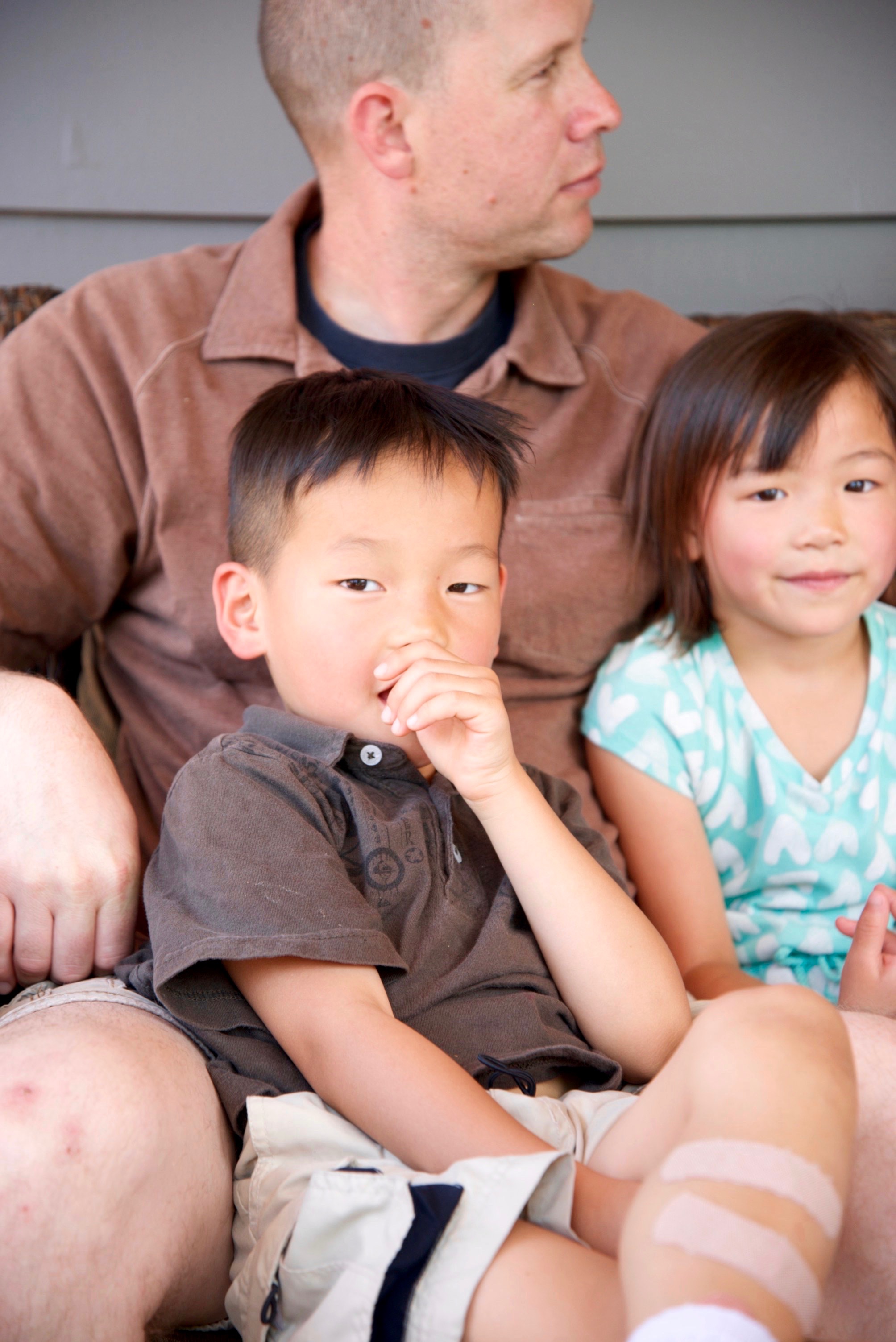
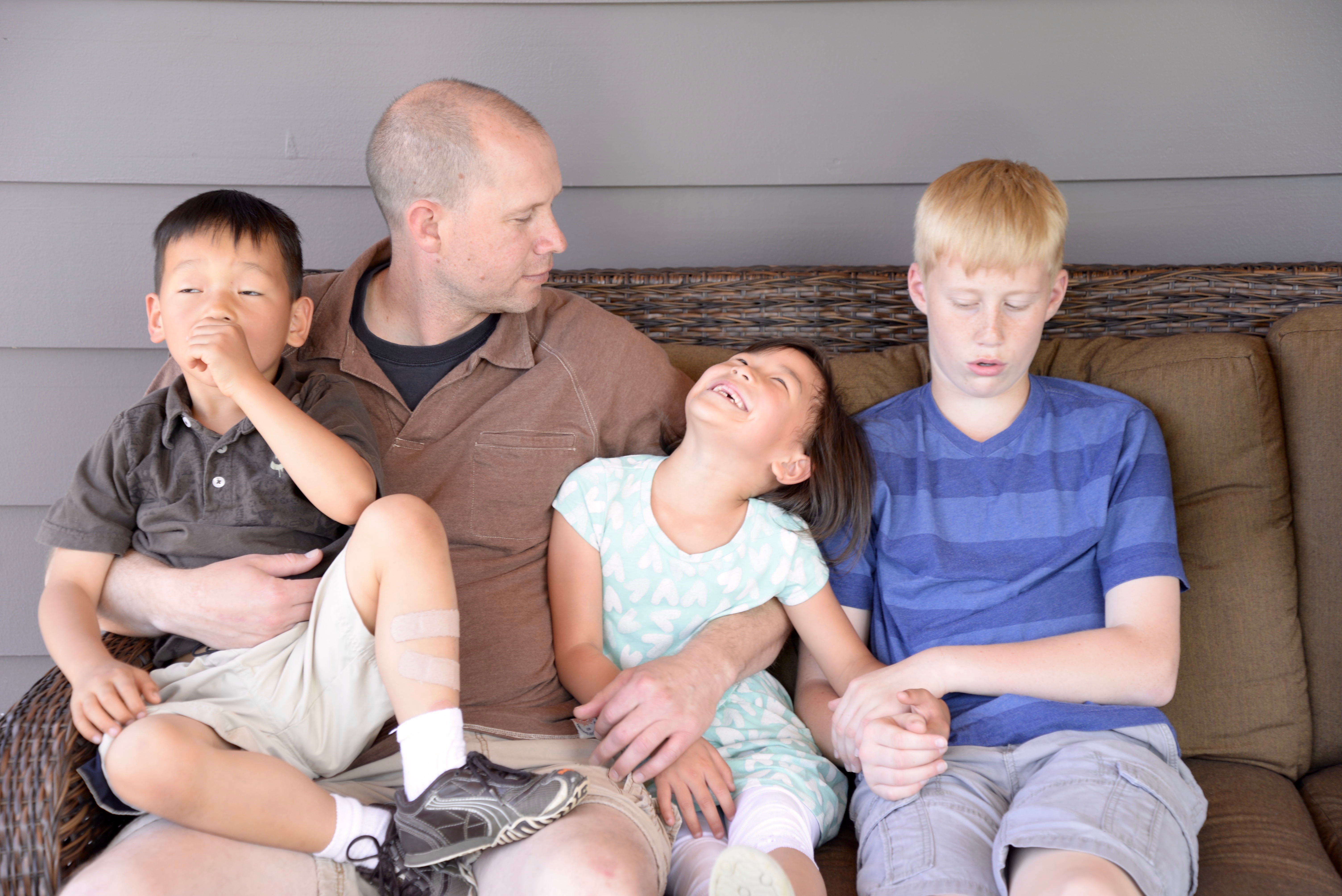
While this care is truly lifesaving and life changing, the reality is that children around the world wait to be adopted, and resources are limited. And often, children with special needs wait the longest for a permanent, loving family. But while they wait, Holt is dedicated to providing the unique care these children need to thrive. And there are others who partner along with us in this mission.
In the same way that the Comers felt called to adoption, they are committed to advocating for the children who wait. Last year, Jennifer had the unique opportunity to travel to China and visit a Holt-supported group home for children with HIV. She and her team traveled with the purpose of meeting the children so they could then return home and advocate for their adoption by sharing their stories with potential families. While there, she felt heartbroken seeing how these children may never have the same opportunities as her own children.
In China, the government covers the cost of medication for individuals who have HIV. What most plagued the children in the HIV group home that Jennifer visited was not the disease itself, but rather the stigma surrounding it. These children are often orphaned or abandoned by their families, cannot attend public schools and are sometimes evicted from their homes — just because they have HIV.
Jennifer and Marc experienced stigma another time when they were in China to bring home their child who had cleft lip and palate. While many children with cleft lip and palate receive correctional surgery before they are adopted, their child did not because of their specific orphanage in China. And as they walked around China together in their first days as a family, those around them acknowledged their child’s condition with sidelong looks and unwelcome expressions. “We could tell by the looks on their faces, and it was confirmed by our translator, that it wasn’t pleasant things they were saying about our child,” Jennifer says.
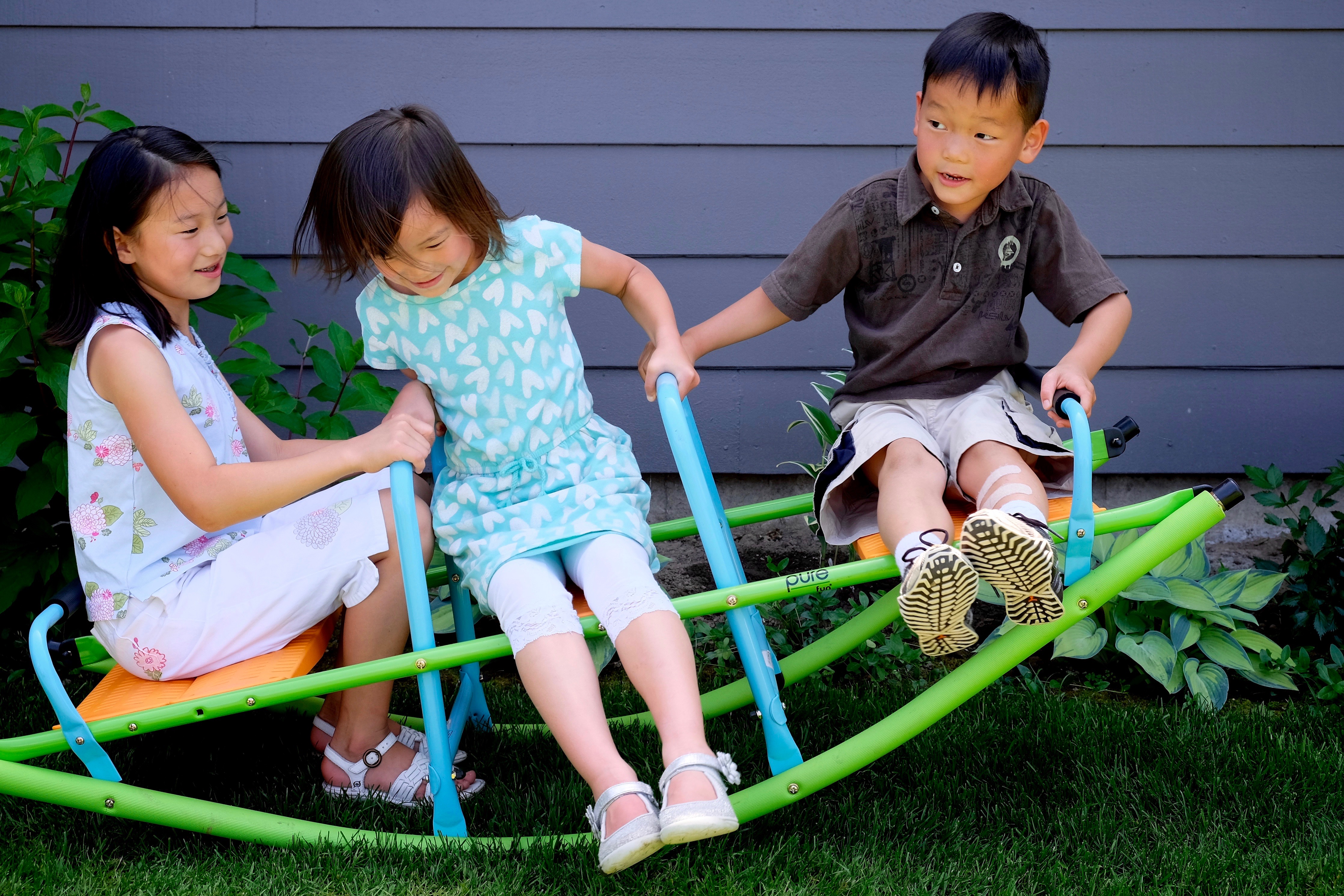
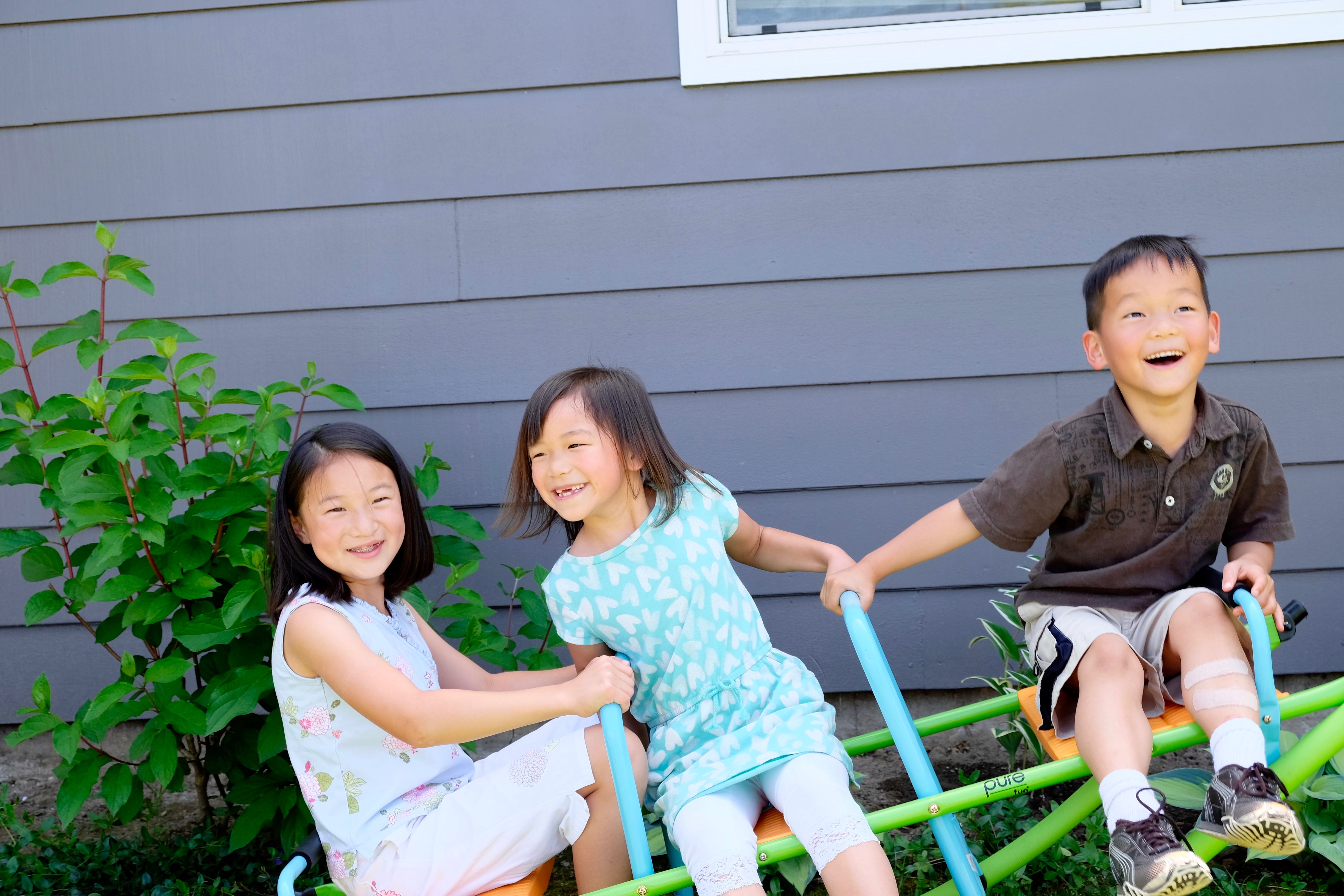
Stigma is not the only reason children with special needs are abandoned. Often, families lack the resources to care for a child with a special medical need — and they will leave their child in a place where they can be found, and cared for by someone who can. But far too often in countries around the world, stigma against special needs — all special needs — robs children of the resources, care and love that they need and deserve.
While we seek a world where there is no stigma against children and individuals with special needs, that doesn’t mean we leave it out of the conversation. While children are not defined by their special needs, it is still a part of who they are — a part of themselves that they should feel no shame in.
For this reason, the Comers intentionally talk about special needs in their home. “We talk about it openly because we really feel strongly that we want them to feel absolutely no shame and no guilt [because of their special needs],” Jennifer says. “We’ve chosen to just speak truth, really.”
And this truth is the same truth that Holt has been committed to for 60 years — that children with special needs deserve the same as any other child. And that all children are created equal and deserve resources, care, hope and the love of a family.
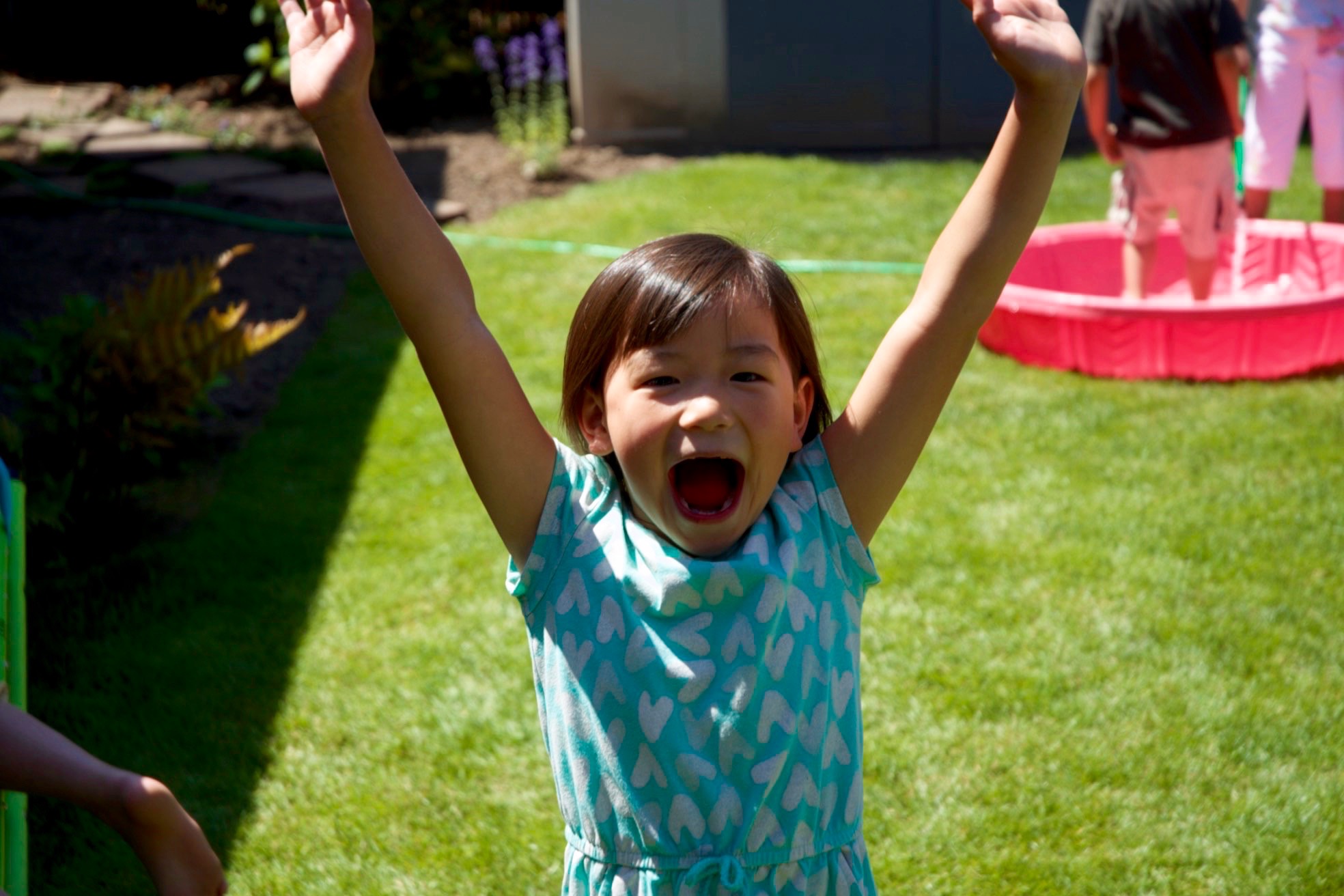
And for all six of the Comer kids, the love of a family has made all the difference. This difference is evident today, through joy-filled toothless smiles and the sharing of popsicles, and it will be evident in their future — a future, that for all six of them, is full of opportunity, love and hope.
*Name changed
Megan Herriott | Staff Writer
In this video, Jennifer and Marc share more about their child who has HIV, and the importance of caring for other children with HIV who are waiting for a family.
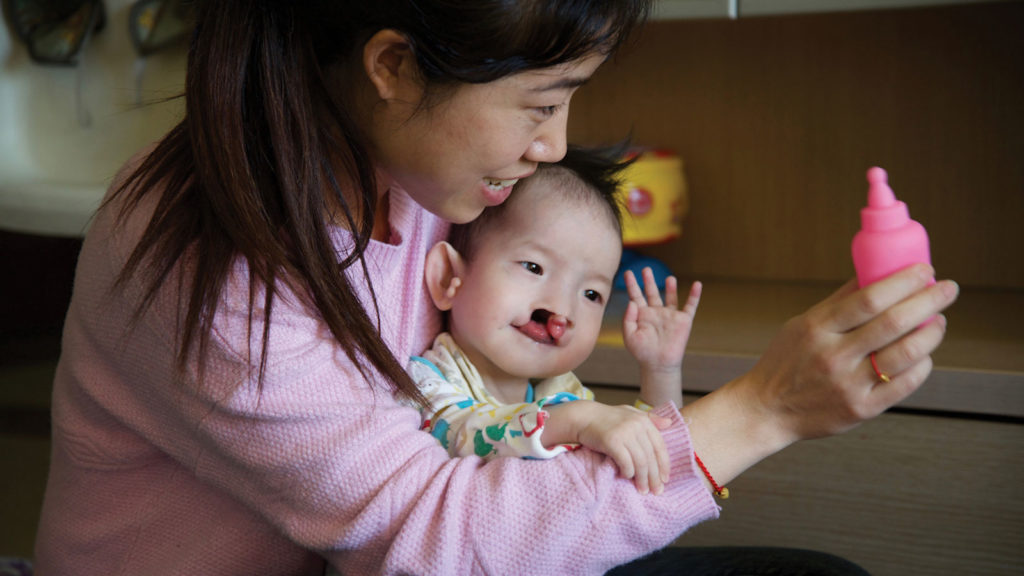
Give to the Molly Holt Fund!
Provide urgently needed medical care to a child in an orphanage with special needs.
